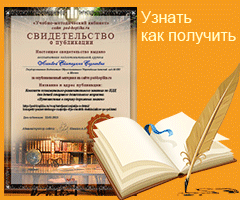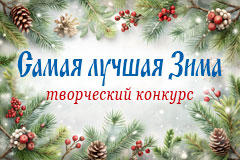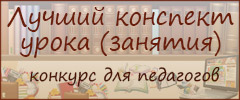Внеклассное мероприятия по английскому языку для 7-8 классов к 9 мая - День Победы с презентацией
Разработка внеклассного мероприятия по английскому языку, приуроченная к 70 летию со Дня Победы в Великой Отечественной Войне “Peace for the world”
The 70th Anniversary of the Great Victory.
Цели и задачи:The 70th Anniversary of the Great Victory.
- Активизировать фонетические и лексические навыки.
- Развивать навыки чтения.
- Прививать чувство патриотизма, любви к Родине.
- Воспитывать у учащихся чувство ответственности за судьбу Родины.
- Развивать уважение и признательность к людям, отдавшим жизни за мир на земле.
- Утверждение общечеловеческих нравственных принципов.
Оборудование: мультимедийный проектор, презентация, музыкальное оформление, раздаточный материал.
«Война и дети – нет более несовместимых понятий»
«War and children are not compatible concepts»
(А.Твардовский)
Ход урока
Teacher: The English language unites people nowadays and helps to live in peace together. We’ll remember the Great Victory and claim for the peace in the world with the help of English at our lesson today.
We are celebrating the 70th anniversary of the Great Victory on the 9th of May in 2015; Victory Day is one of the most important holidays in our country. It is also a great holiday for all the countries which fought in the Second World War against fascism. We should never forget those who gave their lives for our future. Let’s listen to the poem “Remember”. Sergei come up to the blackboard. (На экран проецируется стихотворение «Remember»
Р.Рождественского, один из учеников читает его наизусть)
Pupil1: Remember!
In centuries,
In years – remember!
About those,
Who has never come,
Remember!
Do not cry!
In a throat, you must restrain groans,
Bitter groans.
Be worthy of heroes!
Be eternally worthy!
Teacher: And now we announce the minute of silence. Stand up, please.
(A minute of silence)
Teacher: Sit down, please.
Teacher: Let’s work in groups. For every task you will get the flashcard. At the and we’ll count them and appear the winner.
Task 1
Teacher: Войне посвящено много стихов и песен. Одним из самых выдающихся является стихотворение К. Симонова «Жди меня и я вернусь!», которое вы все наверняка слышали. Вспомним отрывок из него. (На экран проецируются изображение военного эпизода с названием стихотворения, биография с фотографией К. Симонова и само стихотворение «Жди меня и я вернусь!», один из учеников читает его)
Жди меня, и я вернусь.
Только очень жди,
Жди, когда наводят грусть
Желтые дожди,
Жди, когда снега метут,
Жди, когда жара,
Жди, когда других не ждут,
Позабыв вчера.
Жди, когда из дальних мест
Писем не придет,
Жди, когда уж надоест
Всем, кто вместе ждет.
Teacher: Оно переведено на многие языки мира, в том числе и на английский.
Teacher: You can see the lines from this poem on your desks. Your first task to place the lines in the correct order. Who will do it faster, get a flashcard.
Konstantin Simonov — wait for me, and I’ll come back
1. Wait for me, and I'll come back!
Wait with all you've got!
2.Wait, when dreary yellow rains
Tell you, you should not.
3.Wait when snow is falling fast,
Wait when summer's hot,
4.Wait when yesterdays are past,
Others are forgot.
5.Wait, when from that far-off place,
Letters don't arrive.
6.Wait, when those with whom you wait
Doubt if I'm alive.
Teacher: Please, read your answers. (читают стихотворение). Adelya, please read the poem once again. (наизусть)
Task 2
Newspapers of all the world wrote about deeds during the 2d WW. (На экран проецируются плакаты о войне). We should know the war vocabulary to understand the papers and posters. Let’s check how well you know the words.
Teacher: Fill in the gaps. You have 2 minutes.
1) C_l_brat_
2) De_ora_e
3) Gr_ _t
4) D_ _d
5) Con_ratul_te
6) _icto_y _ay
7) Pat_ioti_
8) W_r
9) Ba_ _le
10) Ve_e_an
11) P_r_de
12) Sal_te
13) Re_arkab_e
14) In_ade_
15) G_ie_e
16) A_ce_tor
17) To be pr_ _d of
18) A__iversar-
19) _n_my – враг
20) Fa__ist
Keys:
1) Celebrate
2) Decorate
3) Great
4) Deed
5) Congratulate
6) Victory Day
7) Patriotic
8) War
9) Battle
10) Veteran
11) Parade
12) Salute
13) Remarkable
14) Invade_ – захватчик;
15) Grieve – огорчать; печалить; горевать;
16) Ancestor – предок;
17) To be proud of
18) Anniversary – годовщина
19) enemy – враг
20) Fascist
Teacher: While S. G. check your answers let’s read and translate the words. (читают готовые слова, проецированные на слайде). We hope now you can read foreign papers and posters.
Task 3
Teacher: A lot of different countries took part in the 2d WW. Do you know them? (называют страны).
Now look at the screen here are the countries, nationalities and languages. Put the words in the right column. Choose from here. You have 2 minutes. (На экран проецируется задание с названиями стран, национальностей и языков)
Russia Italian the British
The USA Poland English
the Americans The UK the Polish
the Russians Polish the Italians
Italy Germany the French
English Japan the Japanese
French the Germans Russian
Japanese German France
Complete the table with the missing information:
Keys:
Country Nationality Language
Russia the Russians Russian
France the French French
The USA the Americans English
Poland the Polish Polish
Italy the Italians Italian
The UK the British English
Japan the Japanese Japanese
Germany the Germans German
Teacher: Let’s check.
Teacher: There is no a family in our country which wasn’t touched the WAR. Dubinin Roma wants to tell the story of his family. (рассказывает домашний проект с презентацией о своем прадедушке).
Task 4 Quiz
Teacher: It was a long and hard way to win in the Great Patriotic War. We have no future without knowledge of history. How well do you know the main events of this war? Ask each other some questions.
1. When did the Great Patriotic War begin? (1941)
2. Whom of the war heroes do you know? (Г. Жуков, Рокоссовский, Павлик Морозов, Николай Гастелло и др.)
3. How long did the Siege of Leningrad last? (900 days)
4. Which of the following death camps was the biggest? (Buchenwald)
5. Who was Britain’s Prime Minister during the war? (W. Churchill)
1. When did it finish? (1945)
2. What Hero cities do you know? (Moscow, St. Petersburg, Minsk, Smolensk etc.)
3. What river does Stalingrad stand on? (Volga)
4. What was the biggest tank battle of WW II? (The Battle of Kursk)
5. In 1943 Stalin, Roosevelt and Churchill met at a conference. Where did it take place? (In Teheran)
Task 5
Teacher: But then Victory came. Victory Day is the main national holiday in Russia. Let’s read some information about the traditions of celebrating. And you can share this information with your English-speaking countries. … read the text. (На экран проецируется текст Victory Day)
Victory Day
In Russia and other countries Victory Day, or 9th May, is one of the great holidays of the year. It is a holiday of all people.
In all towns there are decorations, flags and posters in the streets, in the shop windows and on the front of large buildings.
On Victory Day morning there are meetings and demonstrations of the veterans who fought in the Great Patriotic War.
On that day there is military parade in all big cities of our country.
Flowers and souvenirs are given to those who took part in the Great Patriotic War.
There are a lot of people in the streets and squares, at theatres, cinemas and concert halls. They are all celebrating their holiday. Many people go to see their friends or go for walks in the parks.
In the evening there is a holiday salute and a minute of silence to remember all those who did not come back from the war.
Teacher: And now do the next task. State if the sentences true or false. You have 1-2 minutes:
1. Victory Day is celebrated only by Russia. (false)
2. People prepare for Victory Day a lot. (True)
3. There is military parade on Victory Day. (True)
4. A few people celebrate Victory Day. (false)
5. People like to see salute and follow a minute of silence to remember all those who did not come back from the war in the evening. (True)
Teacher: And you have flashcards with some letters. Come up and try to make up the word. Show us your word. What is it?(учащиеся составляют слово PEACE – мир)
In order to avoid such wars again we must keep peace of the planet. Let’s sing about it. (Поют все вместе песню) (На экран проецируется отрывок из песни).
(Song “May there always be Sunshine!” Words by L.Oshanin. Music by A.Ostrovsky. Translated by Tom Botting)
Bright blue the sky,
Sun up on high-
That was the little boy’s picture.
He drew for you,
Wrote for you too,
Just to make clear what he drew-
Chorus:
May there always be sunshine,
May there always be blue skies,
May there always be Mummy,
May there always be me! (Twice)
My little friend,
Listen, my friend,
Peace is the dream of the people,
Hearts old and young
Never have done
Singing the song you have sung.
Chorus.
Teacher: Thank you, dear guests and dear children! Peace for you and your children! Good bye!
Приложение 1
(Song “May there always be Sunshine!” Words by L.Oshanin. Music by A.Ostrovsky. Translated by Tom Botting)
Bright blue the sky,
Sun up on high-
That was the little boy’s picture.
He drew for you,
Wrote for you too,
Just to make clear what he drew-
Chorus:
May there always be sunshine,
May there always be blue skies,
May there always be Mummy,
May there always be me! (Twice)
My little friend,
Listen, my friend,
Peace is the dream of the people,
Hearts old and young
Never have done
Singing the song you have sung.
Chorus.
Soldier lad, stay!
Hear what we say-
War would make all of us losers.
Peace is our prize.
Millions of eyes
Anxiously gaze at the skies.
Chorus.
Down with all war!
We want no more.
People, stand up for your children!
Sing, everyone –
Peace must be won,
Dark clouds must not hide the sun.
Chorus.
Приложение 2
1 Group
1) C_l_brat_
2) De_ora_e
3) Gr_ _t
4) D_ _d
5) Con_ratul_te
6) _icto_y _ay
7) G_ie_e
8) W_r
9) A_ce_tor
10) Ve_e_an
2 Group
1) P_r_de
2) Sal_te
3) Re_arkab_e
4) In_ade_
5) Pat_ioti_
6) To be pr_ _d of
7) A__iversar-
8) Ba_ _le
9) _n_my
10) Fa__ist
Приложение 3
Complete the table with the missing information:
Country Nationality Language
... ... ...
Приложение 4
1 Group
1. When did the Great Patriotic War begin?
2. Whom of the war heroes do you know?
3. How long did the Siege of Leningrad last?
4. Which of the following death camps was the biggest?
5. Who was Britain’s Prime Minister during the war?
2 Group
1. When did it finish?
2. What Hero cities do you know?
3. What river does Stalingrad stand on?
4. What was the biggest tank battle of WW II?
5. In 1943 Stalin, Roosevelt and Churchill met at a conference. Where did it take place?
Приложение 5
1 Group
State if the sentences true or false. You have 1-2 minutes:
1. Victory Day is celebrated only by Russia. _______
2. People prepare for Victory Day a lot.______
3. There is military parade on Victory Day. ______
4. A few people celebrate Victory Day._______
5. People like to see salute and follow a minute of silence to remember all those who did not come back from the war in the evening. _______
2 Group
State if the sentences true or false. You have 1-2 minutes:
1. Victory Day is celebrated only by Russia. _______
2. People prepare for Victory Day a lot.______
3. There is military parade on Victory Day. ______
4. A few people celebrate Victory Day._______
5. People like to see salute and follow a minute of silence to remember all those who did not come back from the war in the evening. _______
Презентация на тему: Peace for the world
Рекомендуем посмотреть:
 Сценарий игровой программы к 9 мая День Победа, 7-8 класс
Сценарий игровой программы к 9 мая День Победа, 7-8 класс
 Внеклассное занятие ко Дню Победы с презентацией для 5 - 9 класса коррекционной школы
Внеклассное занятие ко Дню Победы с презентацией для 5 - 9 класса коррекционной школы
 Творческий проект ко Дню Победы в Великой Отечественной войне, 7 класс
Творческий проект ко Дню Победы в Великой Отечественной войне, 7 класс
 Сочинение к 9 мая, 7 класс. Ветеран в моей семье
Сочинение к 9 мая, 7 класс. Ветеран в моей семье
Похожие статьи:
Классный час «Письмо неизвестному солдату», 7 класс
Классный час к 9 мая – День Победы в 8 классе
Литературно-музыкальная композиция для школьников «Сталинградская битва»
Историческая игра - викторина о Второй мировой войне, 7 класс
Участник №148 профессионального конкурса для педагогов «Коллекция педагогического мастерства и творчества» с 15 августа по 15 ноября 2015 года
|
|
Автор: Юлия Николаевна Силкина
Опубликовано: 3342 дня назад (30 октября 2015)
Просмотров: 10828
Рубрика: конкурс
|
+1↑ Голосов: 1 |



